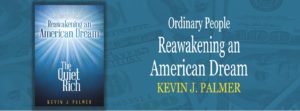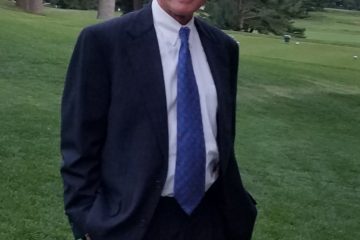A Vision for Archaeology
As recipient of the Governor’s Archaeology Award I am dedicated to the management of ancient cultural resources. A worthy steward of that ethic is the Arizona Archaeological Society (AAS). Its proud history is one of peaks and troughs but primarily a consistent climb from a simple idea to an organization that was not only renowned in the state of Arizona but recognized as a model for the rest of the country.
In the last years AAS had new struggles. Maybe, attributable to the great recession of 2008, their foray kicking and screaming into 21st century technology or changes in political sentiment by regulators about what AAS should and shouldn’t do. Regardless of the reasons, it has taken its toll on membership, leadership, budgeting, and put to question the very purpose of the society’s existence.
Since inception along with other state agencies, it elected to be a Registered Principal/Public Body through a Designated Lobbyist (DL). Now that long standing role is in question–potentially keeping AAS from the broader discussion of archaeology at the government level.
A wrong turn in the evolution of this organization can have a lasting effect as seen in many misjudgments throughout history. It happened in 1914 when a crown prince, named Ferdinand, thought it would be good to have a member of the Royal Family show up in the region. So with his wife, Sophie, he drove with his staff to a place called Sarajevo.
The townsfolk turned out in force. Suddenly an assassin hurled a short-fuse bomb into the touring car. The Archduke may have mumbled something like, “imbecile.” Then picked up the bomb and flung it over his shoulder. Four other assassins took this as a bad omen, ditched their guns and headed for the local brew pub.
During the ceremonies the crown prince realized his speeches had little relevance to the actual day-to-day life of the people. Soon the crowd got antsy and the police decided to change the plan and send them back the way they came instead of parading down the main drag (Franz Josef Strasse) waving his jewelry.
However, representing well its duty of public service the lead car mistakenly turned onto Franz Josef Strasse and the Archduke’s car followed into the crowed square.
The amazing lack of strategic vision was not lost on a nineteen year-old guy named Gavrilo Princip (the sixth assassin) who had been standing in the sun just in case the first five guys missed.
As the planning committee tried to unravel the gridlock, Gavrilo promptly shot the Archduke and Sophie and within 48 hours, World War I was on the way.
The Arizona Archaeological Society now stands on a similar street corner and should avoid short term decisions that preclude future potential, and instead, ponder strengths. When AAS was considered the preeminent public archaeological organization in the state, it was asked to brief Arizona’s Governor about its role in archaeology. Since then many similar organizations some of which have split from AAS diminish its distinction and consequently its access.
In embracing the influence of its official state status, the Arizona Archaeology Society can provide a clear vision for Arizona Archaeology with precise public policies communicated through its Designated Lobbyist at the Arizona Archaeological Society,
Kevin J. Palmer The Quiet Rich

Kevin J. Palmer uses his Wealth Stratification expertise to understand markets and as a writer/producer to champion financial justice. He has spent decades driving profits and performance for Wall Street firms and developed high margin revenue business models that allowed broker-dealers to gain substantial competitive advantage. He was responsible for improvements in financial delivery systems and a recurring revenue models that were scalable across the United States. He pioneered innovative strategy and mission statements cascading them to ranking staff, for implementation on a national scale.
Recently at his behavioral finance firm, this recognized wealth expert, mapped how ordinary people used cognition and personality to make financial decisions that created wealth. In his book “The Quiet Rich, Ordinary People Reawakening an American Dream” this champion of Financial Justice illustrates how socioeconomic understandings can translate into financial freedom and improved human condition.
The information contained herein has been obtained from reliable sources however may not be accurate and is not guaranteed by us. Readers are encouraged to undertake their own independent investigation and evaluation of the relevant facts. All claims and allegations are subject to adjudication, decisions may be subject to appeal, and no inference is intended, nor should any inference be made from any information contained herein from any source. This posting and the information on our website is for general information purposes only. This content should be not considered legal advice, and any responses, comments, e-mails, other communications do not form any attorney client relationship.
As Frank Burns said, “If I made any mistakes in this article, they are God’s will or someone else’s fault.”
Ordinary People
Pawns for Politicians
Bureaucrats
Corruption
Injustices
Ridiculous Restraints
Limit personal freedom
Stifle entrepreneurship
Special interest groups
American Dream
Under Attack
Kevin Palmer Scottsdale
Unreasonable Requirements
Honest Competition
Consumer rights
Managing Director
Strategic Management Advisors
Public advocacy
Strategic research
Emotional Intelligence
Economic Information http://smainstitute.com/
https://thequietrich.com/tag/rebelmagazine-com/
https://kevinpalmerscottsdale.com/2019/04/11/election-time-and-more-of-the-same/
http://smainstitute.com/sma-multi-media/
http://www.douglas-budget.com/obituaries/article_2afa6758-4092-11e7-873c-b367d0fe4b6a.html

